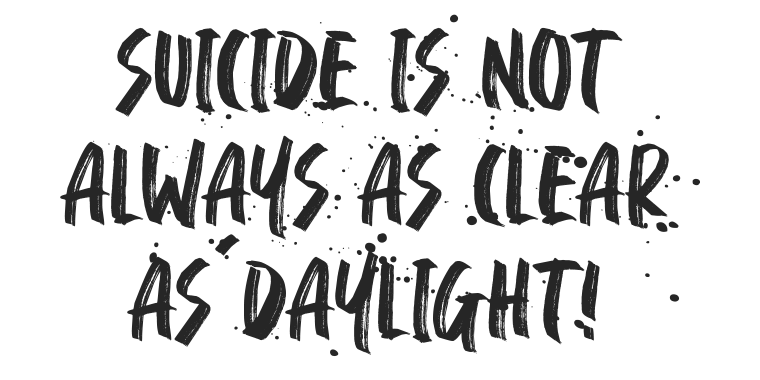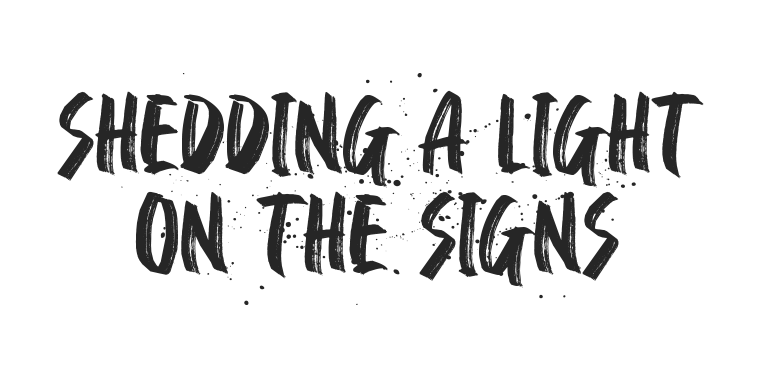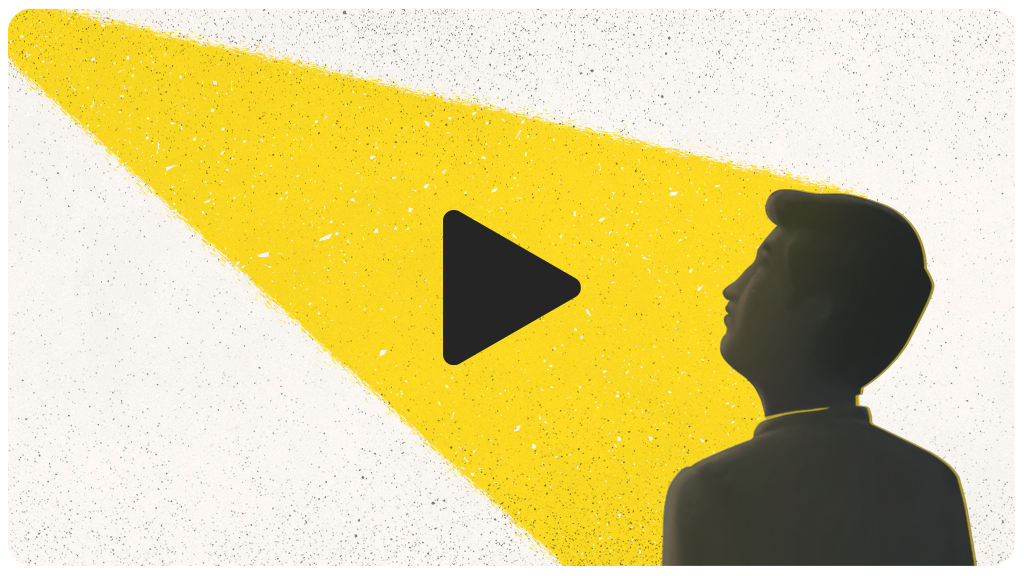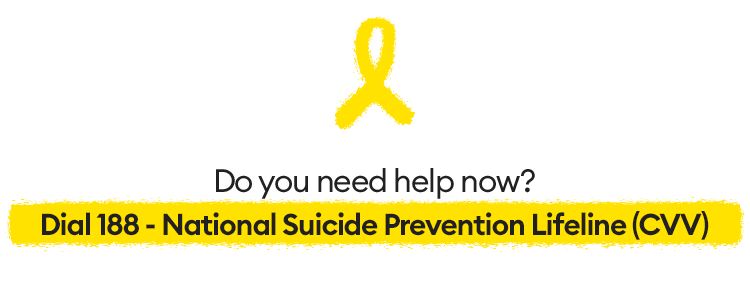According to Ministry of Health data, every day, at least 32 people take their own lives in Brazil, which represents a total of 12 thousand per year – worldwide, this number reaches 1 million. And it is not uncommon for those who are around such cases to feel “caught by surprise”.

This is because a (potentially) suicidal person does not always fit the visual pattern that most of us expect: of a sad, melancholic, downbeat person all the time. Could it be that part of the problem in interceding is not there?

And even if it were, would you know how to help? In most cases, the answer is “no”. After all, detecting a suicidal crisis is not a “cake recipe”: approximately 97% of the suicide cases are preceded by emotional disorders, such as depression and anxiety, which, by its very nature, makes each case a unique one.
Still, someone in such a level of suffering can show certain signs – from the most classic to the least common – that are fundamental for those around them, such as family members and close friends, to be able to respond in time.
But before talking about them, if you have detected a suicide situation in real imminence, act quickly and straightforwardly by contacting the agencies below:
Department
Police
Prevention Lifeline
(CVV)

One of the biggest myths surrounding suicide is that the person who intends to take his or her own life does not warn or talk about it. This is not true, and no sign should be mocked or underestimated. Let’s take a look at them:

Let’s suppose that you have identified someone with suicidal tendencies, now what? Before knowing what to do, it is just as important (or more important) to know what NOT to do. This is because some attitudes, even the ones with the best intentions, can contribute to overburdening even more those who are at risk.
DO NOT condemn
or judge
What distinguishes someone without emotional disturbances from someone with suicidal tendencies is just the circumstances. So don’t be prejudiced against someone else’s pain, and never use words like “that’s cowardly”, “that’s crazy”, or “how weak”.
DO NOT
trivialize
No matter how “solvable” the other person’s situation may seem to you, only those who are going through it know what an internal battle it is. Don’t trivialize it with lines like “is that why you want to kill yourself?” or “I’ve been through much worse things and didn’t kill myself.”
DO NOT give
aggressive opinions
Many people believe that those with mental health problems need to be “shaken up”. This, besides underestimating the serious nature of the situation, does not help at all. Never use phrases like “you want attention,” “you are missing God,” or “that’s a lack of shame on your face.”
DO NOT
relativize
Once again: each person’s pain is each person’s pain. Practice empathy and don’t share thoughts like “there are so many people with more serious problems than yours…”.
NO to toxic
positivity
Despite the good intention, shallow phrases like “get over it”, “think positive”, or “life is good” do not help solve the problem and can get in the way.

Depending on the seriousness of the situation, it may be too preposterous to think that it is possible to make someone change their mind about such a significant decision. However, it is always worth a try. Tips like the ones below can make you actually save a life.
Talking about suicide
does not cause suicide
Quite the opposite! A big part of the problem is that this is still a taboo subject in our society. Find an appropriate time and a quiet place to talk about the topic with the person who needs help. Let them know that you are there to listen with an open mind, and offer help for whatever they need.
Focus on
well-being
Strengthening emotional bonds with family and friends can help nurture more satisfying interpersonal relationships and increase perceptions of support. Encourage this kind of bonding, as well as taking up new hobbies that can generate pleasure and quality of life.
Sadness loves
loneliness
If you think this person is in immediate danger, don’t leave them alone. Seek help from the health and emergency services listed above, or contact someone you know you can trust.
Make
things harder
If the person in concern lives with you, make sure that he or she does not have access to means that could make it easier, such as firearms, medications, etc. Stay in touch to keep track of how they are doing and what they are accomplishing throughout the day.
Encourage them to seek
professional help
There is a limit to what you can do if you are not an expert on the subject. Encourage the person to seek help from mental health professionals, such as psychologists and psychiatrists, or even emergency services, such as the public services listed above.
Is your vocation to be the light at the end of the tunnel for those who are in the darkness?
Become a CVV volunteer and give your time and attention to those who wish to talk anonymously, confidentially, and without judgment, and promote actions of self-awareness.
The main fronts are emotional support (phone, chat, e-mail, and face-to-face service) and community outreach. To be a participant, all you need to do is:
Technical Managers
Sérgio Hércules – CRM (Regional Medical Council: 61.605
Ana Tano – CRP (Regional Psychology Board): 04/48099
Sources
https://bvsms.saude.gov.br/setembro-amarelo-e-dia-mundial-de-prevencao-ao-suicidio-10-9/
https://bvsms.saude.gov.br/bvs/publicacoes/suicidio_saber_agir_prevenir.pdf
https://bvsms.saude.gov.br/trabalhando-juntos-para-prevenir-o-suicidio-10-9-dia-mundial-de-prevencao-do-suicidio/
https://www.cvv.org.br/blog/sentimentos-suicidas/
https://www.cvv.org.br/inscricao-para-novos-voluntarios/
https://www.tuasaude.com/suicidio-na-adolescencia/










